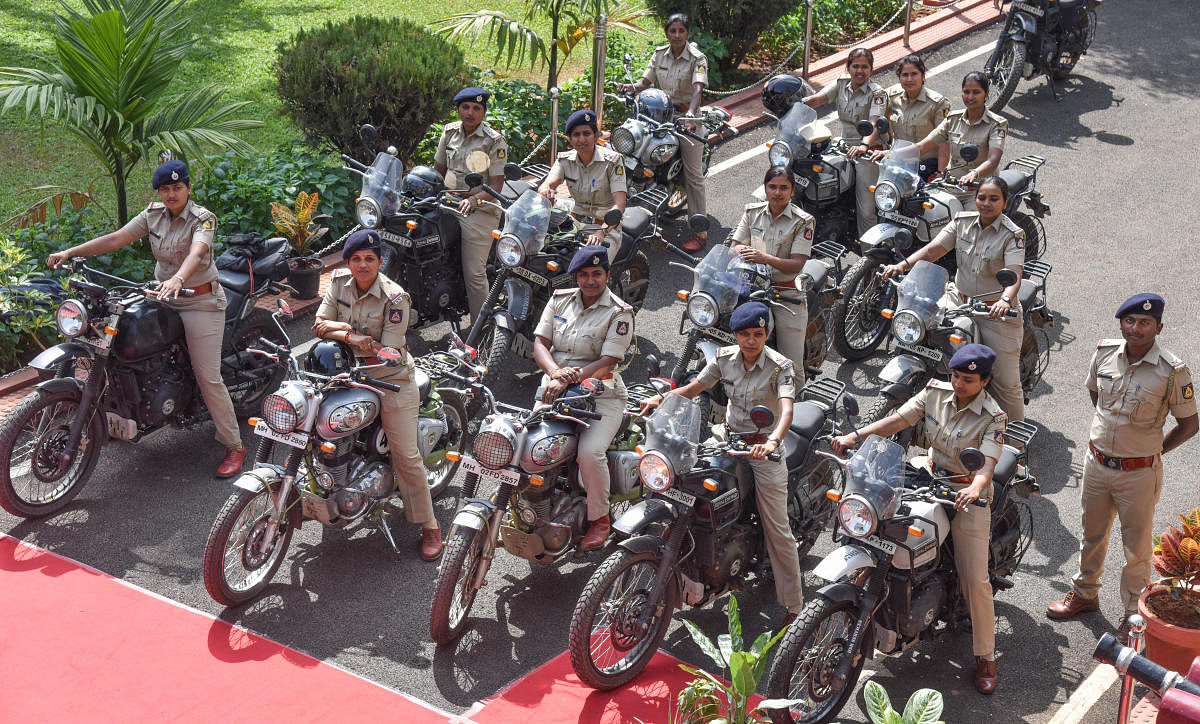

In an effort to make its police stations more approachable for women, Karnataka government established its first All Women Police Station (AWPS), the Halasuru Gate Women Police Station in Bengaluru (now shifted to Shivaji Nagar), in 1994.
Though set up to make it easier for women to file complaints, in some ways it has become harder for women to report crimes. For instance, Bengaluru currently has just two Women Police Stations — Shivaji Nagar Women Police Station and Basavanagudi Women Police Station. All the cases under the jurisdiction of AWPS are referred to these stations. This means women have to travel long distances to file a complaint, often multiple times.
“The local police station neither took up my complaint regarding domestic violence and dowry harassment nor told me what I need to do. Then through some acquaintance I got to know about the Women Police Station at Basavanagudi. To just get a complaint filed, I had to go there five times and each time I was made to wait the entire day. No one told me the procedure I had to follow. The whole experience has been agonising, as some police even use abusive language,” says Nalini (name changed), who stays in Kengeri.
Read | Women in khaki deserve more than tokenism
So even the presence of these stations is not making it easier for women to file complaints. Many women feel that either the number of such stations needs to be increased or the local police stations ought to file the FIR report and then transfer it to the appropriate station.
Also, contrary to the stated goals of AWPS, activists allege that even these police stations are bogged by a patriarchal mindset.
“In case of domestic violence, the police generally ask women to compromise and reconcile. Even though a woman would be traumatised, nobody will be willing to listen to her. There are no separate counselling rooms in the stations, and this makes it harder for women speak about their problems openly,” says Mamatha Yajaman of Gamana Mahila Samuha.
As cybercrimes against women are increasing, activists feel that such crimes should be taken up by these women police stations as well. “In conventional as well as women police stations, they only take cases of physical harm seriously. However, that perception has to change, and mental and emotional trauma should be understood as equally painful,” says Mamatha.
Activists also say there is a need for gender sensitisation of the police force. The police stations need to be more people-friendly and police themselves need to be more cordial.
“The structural problems and systemic flaws of the society are reflected in the police stations as well. It is important to first acknowledge these problems and make the police force more accountable to the society. If the patriarchal mindset does not change, women will find it difficult to get justice,” says Maitreyi Krishnan, an advocate.
However, the police say that the main issue is the shortage of staff which has increased their workload.
“We are under-staffed and as a result, we have to work extra hours. We don’t even get leaves. At least 50 people visit us daily and a minimum of 10 cases are filed in a day. Balancing work and family life has become difficult and this is taking a toll on our health too,” a policewoman at an AWPS told DH.
The policewomen say that they give priority to family counselling and mediation services to help families avoid legal prosecution. “We also refer them to Vanitha Sahayavani centres but if they insist on taking the legal route, we file FIRs and begin the investigation,” the policewoman adds.